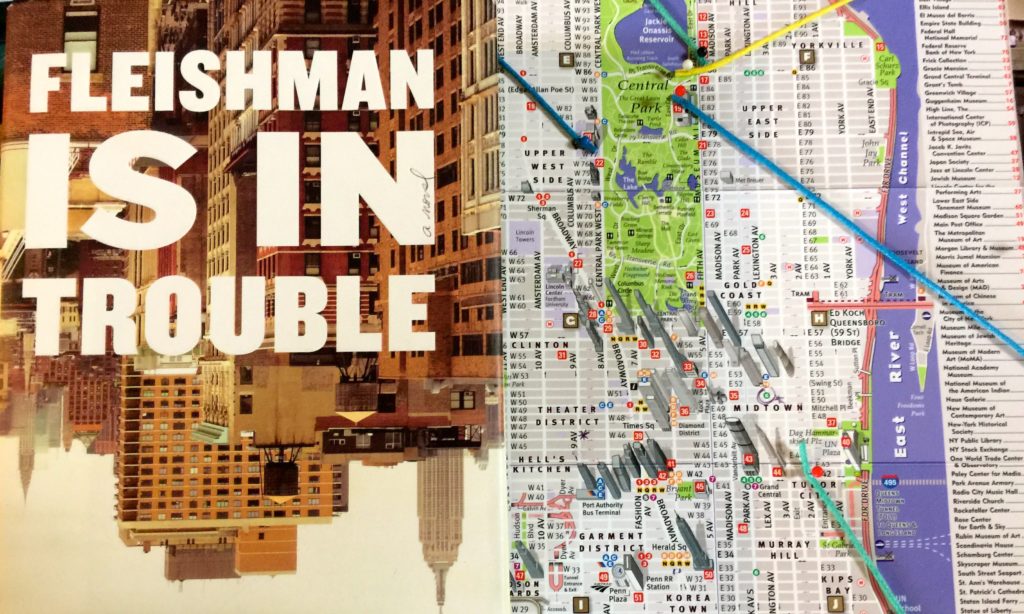If you want to be surprised — about marriage, about poor communication, about the perspectives of others and your own — then you should read Fleishman Is in Trouble by Taffy Brodesser-Akner. Brodesser-Akner is a writer for The New York Times magazine, and she wrote an article last year about Gwyneth Paltrow and Goop that shares the same voice, irony, camaraderie with her audience, and keen self-awareness that makes Fleishman so compelling.
When the novel begins, we wonder if we are in a male fantasy as Toby, a recently divorced 40-ish doctor and father makes his way (visually and eventually physically) through all the available women he can find on his dating app. Toby, whose wife walked out on him, seems like a somewhat likable, occasionally self-pitying and self absorbed character –but then, a surprise takes us off guard. We read a “we” and an “I” and wonder, “Who is speaking?”
We come to understand that there’s a filter on Toby’s perspective, and the new layer of narrative complexity makes the novel more interesting, especially as we learn about the real narrator, Libby, and her previous life as a journalist at a men’s magazine. She explains what the whole novel is likely about when she says, “That was what I knew for sure, that this was the only way to get someone to listen to a woman –- to tell her story through a man; Trojan horse yourself into a man, and people would give a shit about you.” It is at this moment that we understand that this is exactly what’s happening in the novel we are reading.
Libby leaves her work at the men’s magazine before the novel begins to become a stay-at-home mom because she “realize[s] that her problems were now different. They could no longer be grafted onto a man and because they were so unique to the problem of being a woman.” Libby’s voice is sarcastic, witty, at times scathing — yet always patient in laying bare her central characters, Toby and Rachel.
Libby’s slow reveal pulls us along as readers and voyeurs. Anyone who has been in a romantic and parental relationship can relate to the dissonance, the pressures of work and family life pulling on each of you, and the remarkable distance that can build in a marriage. Once I finished the novel, I wanted to go back to the beginning and start again; if the school year hadn’t been so pressing, I would have.

